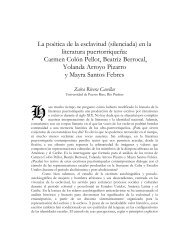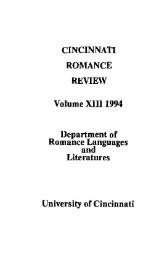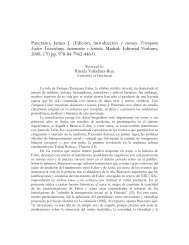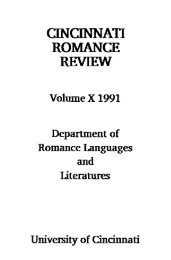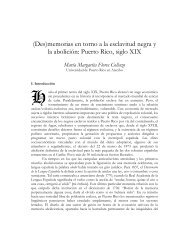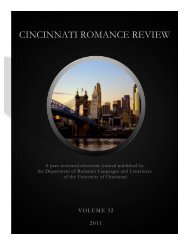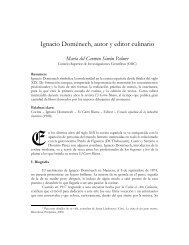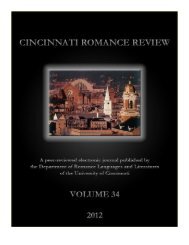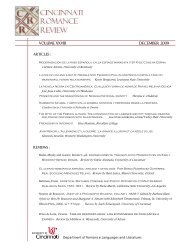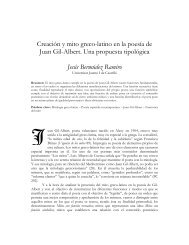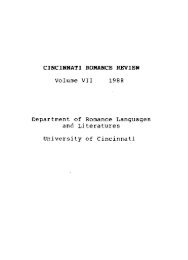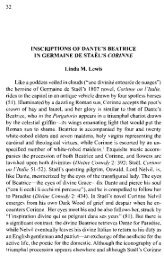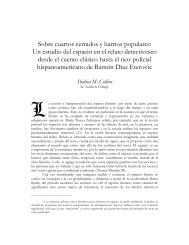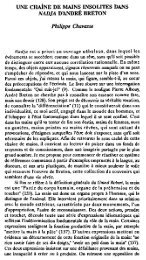Volume 30 (2011) - Cincinnati Romance Review
Volume 30 (2011) - Cincinnati Romance Review
Volume 30 (2011) - Cincinnati Romance Review
You also want an ePaper? Increase the reach of your titles
YUMPU automatically turns print PDFs into web optimized ePapers that Google loves.
Womanism and Social Change in Trinidad<br />
Morgades Besari’s Antígona<br />
from Equatorial Guinea<br />
Dosinda García Alvite<br />
Denison University<br />
Very little attention has ever been paid to Equatorial Guinea’s cultural works<br />
both in African and in Hispanic studies. Even less space has been dedicated<br />
to the country’s women’s lives and their artistic creations. This essay aims to<br />
fill part of that void by examining one of the country’s most important<br />
theatre plays: Antígona (1991), written by Trinidad Morgades Besari.<br />
Using an abundance of African elements such as dance rhythms and drum<br />
beats, Morgades’ Antígona reinterprets the classical Greek drama in the context of the<br />
country’s first elected president, Macias Nguema, who soon became a tyrant. This work<br />
will be analyzed through the lens of African womanism as defined by Hudson-Weems.<br />
While the term womanism was first used by Alice Walker, it now represents a<br />
philosophy that celebrates black roots and the ideals of black life, attempting to give a<br />
balanced presentation of black womanhood, without the belligerence and ethnocentrism<br />
of Western feminisms (Salo 60). Although Equatorial Guinea’s women writers like<br />
Maria Nsue and Trinidad Morgades have expressed reservations with regard to feminist<br />
theories and writings, a womanist reading of Antigone will foreground the Africancentered<br />
representation of GuineoEquatorian cultural beliefs, and the valuable rereading<br />
the author proposes of the classical protagonist in the context of a postcolonial Guinea<br />
that suffered terrible transformations under Macias Nguema’s dictatorship. As the critic<br />
Mary E. Modupe Kolawole points out, much of African womanist literature has been<br />
concerned with change, overtly or covertly. Indeed, the very process of literary<br />
creativity as an aspect of African women’s cultural production is about change. In this<br />
vein, the protagonist of Morgades’ play challenges her audience and the readers to<br />
actively serve the nation by confronting Macias’ power and laws and by working<br />
towards the country’s liberation, in short and long terms.<br />
Trinidad Morgades Besari’s Antigone has a close intertextual relation with<br />
Sophocles’ classic by underlining the strength and rebelliousness of the woman<br />
protagonist when she violates the law forbidding burial of the dead as ordered by the<br />
king figure, at the risk of her own life. Antigone’s actions symbolize, like those of her<br />
predecessors, her resistance to oppression. The appeal of this myth is timeless, but on



